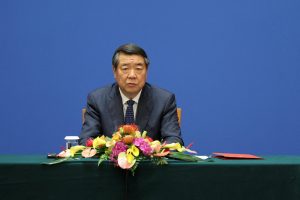India’s largest biopharmaceutical company Biocon is searching for a partner in China to test generic versions of two of the world’s hottest selling (and legal) drugs.
A senior Biocon executive said they want a partner to test generic versions of Ozempic, Novo Nordisk’s popular drug for diabetes, plus the weight-loss treatment Wegovy.
Biocon, which aims to eventually launch generic versions of the injectible drugs globally, wants to find a Chinese partner for clinical trials on 500-plus patients so they can be sold in the world’s second-biggest economy, according to Amit Kaptain, head of the pharma giant’s commercial active pharmaceutical ingredients business.
ALSO SEE: China Signs $2.8bn Deals in Malaysia, Eyes Pan SE Asia Rail Link
“We will find it challenging to do it by ourselves because it’s at least about a $12 to $15 million investment,” Kaptain said, referring to a clinical trial required in China.
Biocon’s CEO said earlier this year that the company was preparing to conduct a clinical trial next year if needed.
Biocon’s generics would join at least 15 other generics or biosimilars in development by Chinese drugmakers ahead of an expiry of patent protection on semaglutide, a key ingredient in both Ozempic and Wegovy, in early 2026 in China.
At least two local firms have already applied to begin commercial sales.
Huge demand for Wegovy and Ozempic – which is sometimes used unofficially as a weight-loss treatment – have helped to turn Novo Nordisk into one of Europe’s most valuable companies.
‘Brain benefits of weight-loss drugs’
Ozempic and Wegovy “have unexpected effects on the brain and open up potential ways to treat depression, anxiety, addiction and Alzheimer’s,” according to a report by New Scientist last week.
Semaglutide drugs such as Ozempic and Wegovy, mimic a gut hormone released after eating, the report said, adding that “there are hints that these drugs could be repurposed to treat depression, anxiety, addiction and even certain eating disorders – as well as neurological conditions such as Parkinson’s disease and Alzheimer’s.”
Six million people in American have been prescribed semaglutide, and that number is tipped to hit 30 million by the end of the decade, it said. The drugs could also protect people against cardiovascular problems like heart attacks.
American pharmaceutical giant Eli Lilly said last month that its diabetes drug tirzepatide has won approval from Chinese regulators.
That news meant it will compete with Novo Nordisk, a Danish rival, which won approval for its popular diabetes drug Ozempic in the huge Asian market in 2021.
Novo Nordisk saw sales of Ozempic – which involves a weekly injection – in the greater China region (that includes Hong Kong and Taiwan) double to 4.8 billion Danish Krone ($698 million) last year.
The number of adults who are overweight or obese in China is projected to reach 540 million and 150 million, respectively, in 2030, up 2.8 and 7.5 times from 2000 levels, according to a 2020 study, by Chinese public health researchers.
- Reuters with additional input and editing by Jim Pollard
ALSO SEE:
China Regulators Approve Eli Lilly’s Diabetes Drug Tirzepatide
Revised Bill Gives US Firms Time to Cut Ties With China Biotechs
Summer 2023 Was North’s Hottest in 2,000 Years – France24
Chinese Biotech Giant WuXi ‘Sent US Client’s Data to Beijing’
China’s WuXi Stocks Plunge on Fears Over US Biotech Bill
China Unveils Brain Chip Similar to Elon Musk’s Neuralink
Asia is Warming Faster, Hit Hardest by Climate Disasters: WMO
Covid Deaths Likely Caused China’s Population to Fall Again























